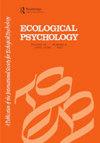如何为人际协同形成“画像”?-羽毛球双打专家的范例数据
IF 1.7
3区 心理学
Q3 PSYCHOLOGY, EXPERIMENTAL
引用次数: 0
摘要
在过去的几十年里,先前关于人际协同效应形成的研究是在不受控制的流形概念下出现的,认为协同效应的形成是基于任务要素的单一组合。然而,在具有冗余自由度的社会系统中,稳定性能目标的几种组合可能是最常见的情况。因此,本探索性研究的主要目标是创建一组任务元素组合(即球员的位置和速度),以稳定羽毛球双打专家的表现目标(即人际距离),这通常与协同效应的形成有关。不受控制的歧管概念被用于这个目的。我们的结果显示,创造的“肖像”没有显示任何模式的人际协同作用。此外,对于所有的画像来说,任务元素的组合比其他元素更重要。这种主导地位随着反弹的持续时间而改变。对于最短和最长的回合,玩家的速度似乎与形成人际协同作用更相关,而对于中等长度的回合,玩家的位置和速度都很重要。协同效应强度随反弹长度的增加而减小。本文章由计算机程序翻译,如有差异,请以英文原文为准。
How to Take a “Portrait” of Interpersonal Synergies Formation? – Exemplar Data with Expert Badminton Doubles
Abstract In the last decades, previous research regarding interpersonal synergies formation has emerged under the Uncontrolled Manifold concept, identifying synergies formation based on a single combination of task elements. However, in social systems with redundant degrees of freedom, several combinations to stabilize a performance goal may be the most common picture. Thus, the main goal of this explorative study was to create a “portrait” of a set of task elements combinations (i.e., player’s positions and velocities) adopted to stabilize a performance goal (i.e., interpersonal distance) in expert badminton doubles, which is usually associated with synergies formation. The Uncontrolled Manifold concept was used for that purpose. Our results displayed that the created “portraits” did not display any pattern of interpersonal synergies. Moreover, for all the portraits there were combinations of task elements that had the primacy over the others. A primacy that changed with the rally length. For the shortest and for the longest rallies, the player’s velocity seemed to be more relevant to form interpersonal synergies, whereas for the middle length, both the player’s position and velocity were important for that purpose. Also, there were a decreasing of synergies strength with the increasing of the rally length.
求助全文
通过发布文献求助,成功后即可免费获取论文全文。
去求助
来源期刊

Ecological Psychology
PSYCHOLOGY, EXPERIMENTAL-
CiteScore
3.30
自引率
10.50%
发文量
8
期刊介绍:
This unique journal publishes original articles that contribute to the understanding of psychological and behavioral processes as they occur within the ecological constraints of animal-environment systems. It focuses on problems of perception, action, cognition, communication, learning, development, and evolution in all species, to the extent that those problems derive from a consideration of whole animal-environment systems, rather than animals or their environments in isolation from each other. Significant contributions may come from such diverse fields as human experimental psychology, developmental/social psychology, animal behavior, human factors, fine arts, communication, computer science, philosophy, physical education and therapy, speech and hearing, and vision research.
 求助内容:
求助内容: 应助结果提醒方式:
应助结果提醒方式:


